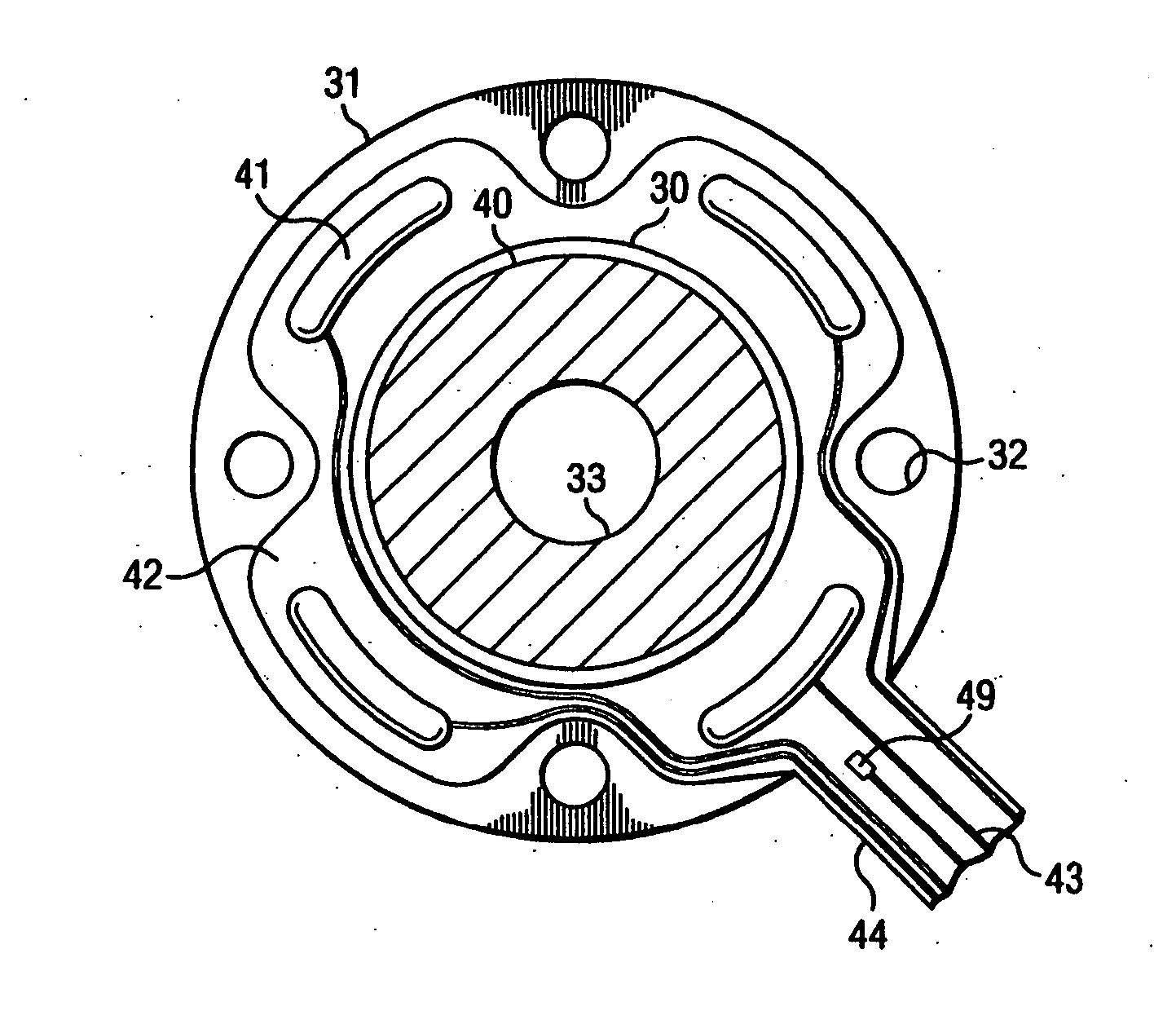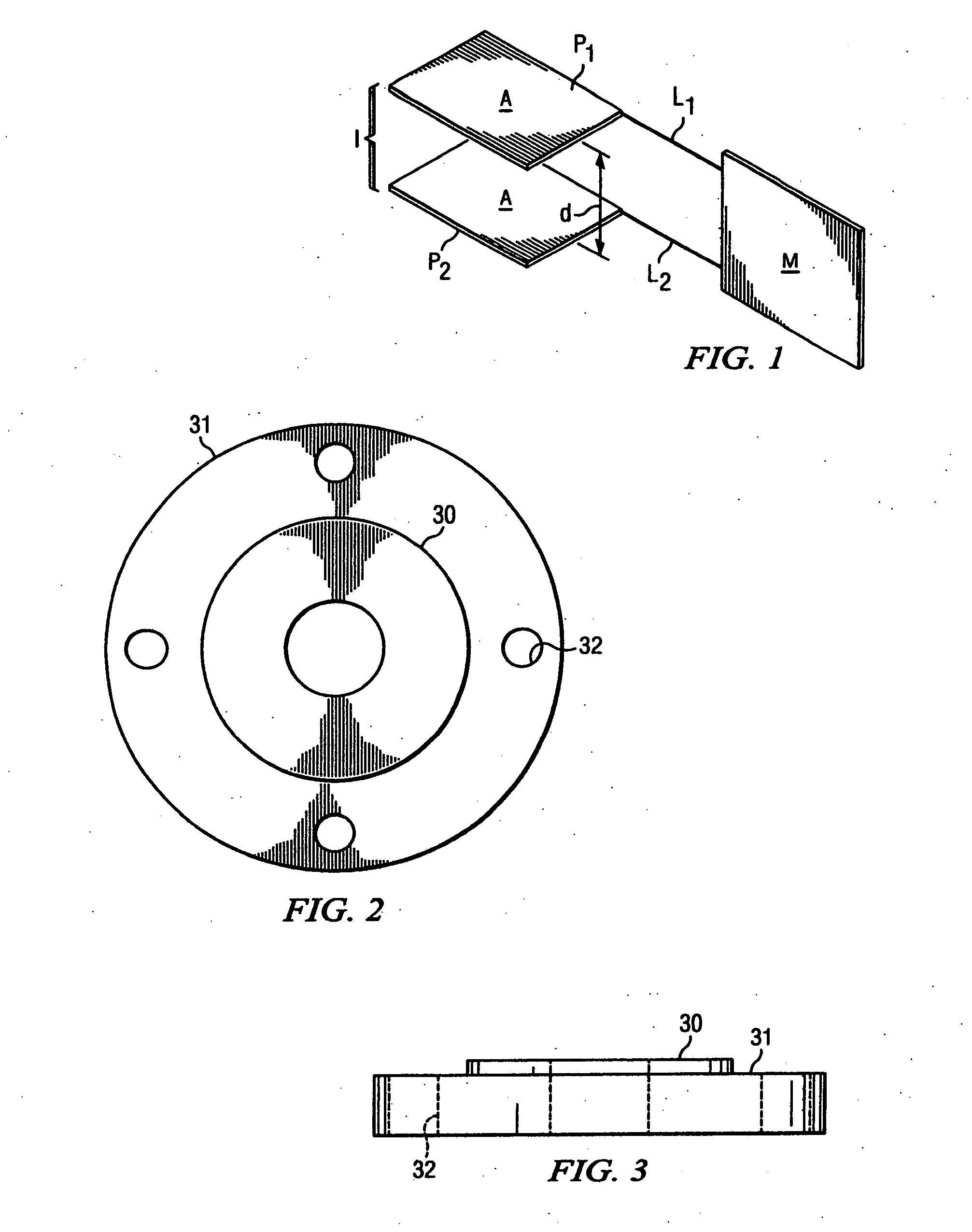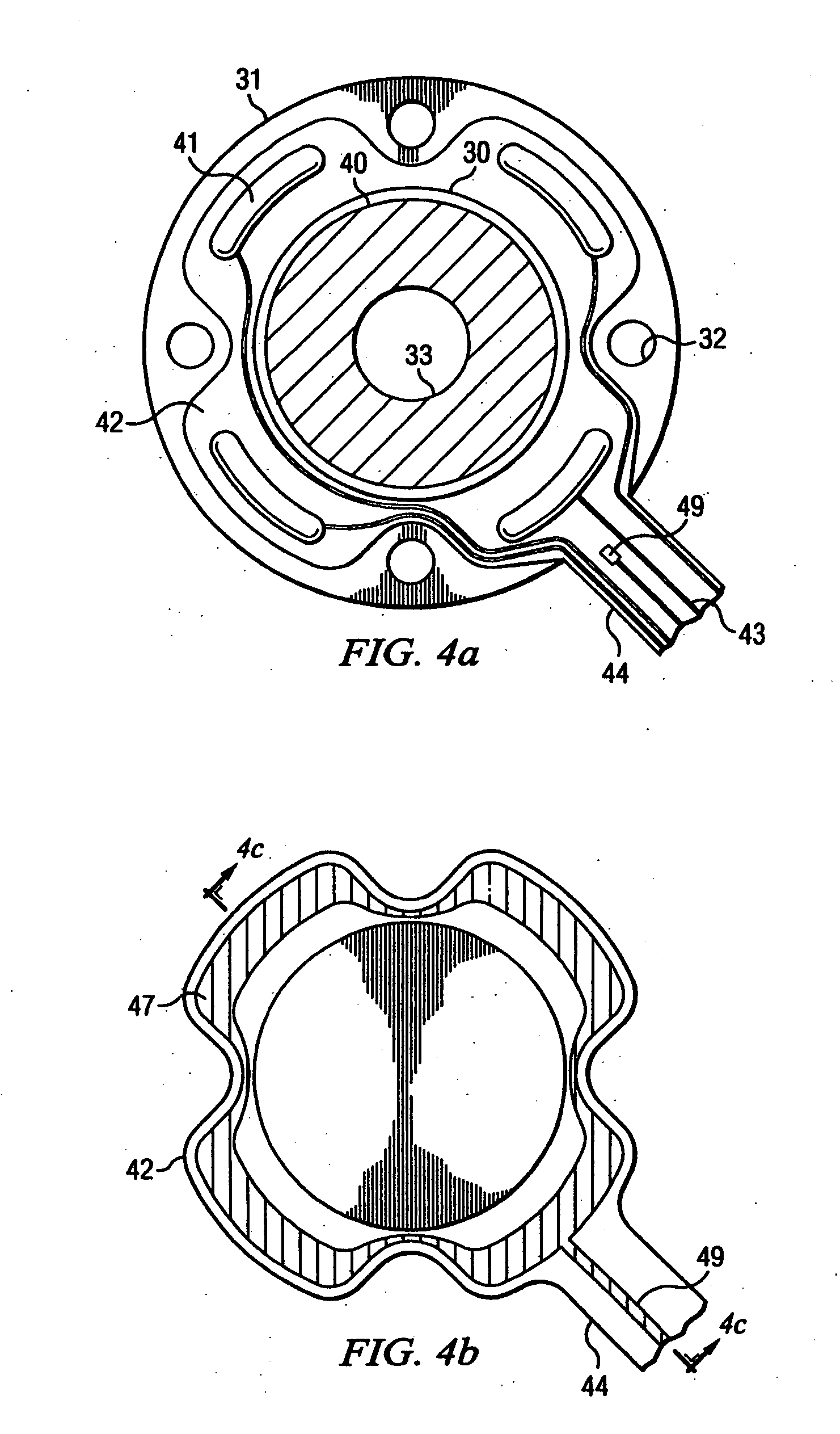Compressive load sensor by capacitive measurement
a capacitive measurement and pressure sensor technology, applied in the direction of instruments, screws, force/torque/work measurement apparatus, etc., can solve the problems of incorrect installation, affecting the safety or environment, and not addressing the sealing of gaskets without tensioning bolts, so as to achieve effective measurement parameters and maintain measurement accuracy.
- Summary
- Abstract
- Description
- Claims
- Application Information
AI Technical Summary
Benefits of technology
Problems solved by technology
Method used
Image
Examples
Embodiment Construction
[0045] In the description that follows, like parts are marked throughout the specification and drawings with the same reference numerals. The drawing figures might not be to scale and certain components can be shown in generalized or schematic form and identified by commercial designations in the interest of clarity and conciseness.
[0046]FIG. 1 is a schematic illustration of a parallel plate capacitor C that provides the basis for a capacitive load sensor in accordance with an exemplary embodiment of the present invention. Capacitor C includes two parallel plates P1 and P2 of equal area “A” formed of a metallic conductor with a dielectric material I between the plates; Dielectric material I has a dielectric-constant “K,” whereas the dielectric constant for air is 1.0, such that the ratio of the capacitance of capacitor C to a capacitor with identical spacing and am using air as an insulator is “K.”
[0047] The parallel plates P1 and P2 area are shown connected via leads L1 and L2 to ...
PUM
 Login to View More
Login to View More Abstract
Description
Claims
Application Information
 Login to View More
Login to View More - R&D
- Intellectual Property
- Life Sciences
- Materials
- Tech Scout
- Unparalleled Data Quality
- Higher Quality Content
- 60% Fewer Hallucinations
Browse by: Latest US Patents, China's latest patents, Technical Efficacy Thesaurus, Application Domain, Technology Topic, Popular Technical Reports.
© 2025 PatSnap. All rights reserved.Legal|Privacy policy|Modern Slavery Act Transparency Statement|Sitemap|About US| Contact US: help@patsnap.com



